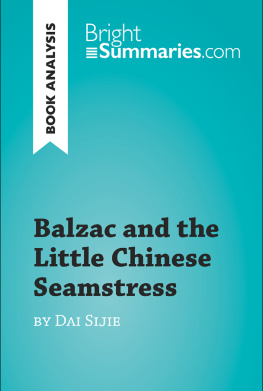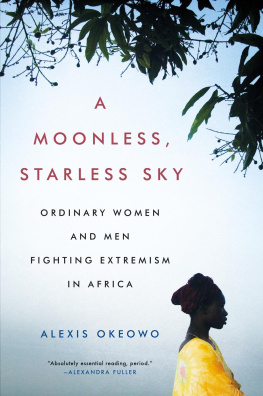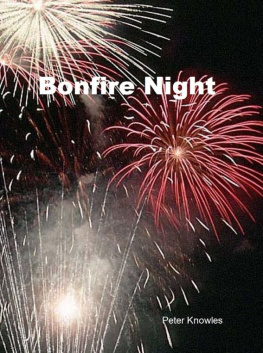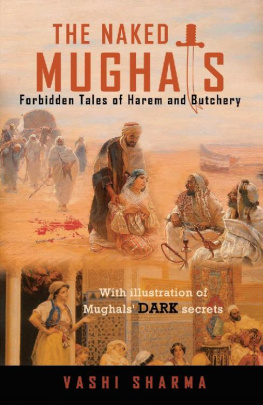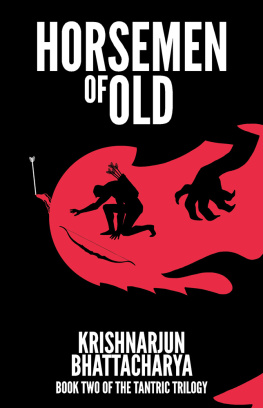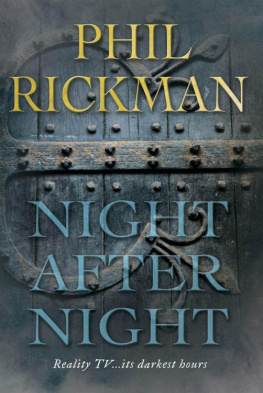Dai Sijie - Once on a Moonless Night
Here you can read online Dai Sijie - Once on a Moonless Night full text of the book (entire story) in english for free. Download pdf and epub, get meaning, cover and reviews about this ebook. year: 2009, publisher: Alfred A. Knopf, genre: Detective and thriller. Description of the work, (preface) as well as reviews are available. Best literature library LitArk.com created for fans of good reading and offers a wide selection of genres:
Romance novel
Science fiction
Adventure
Detective
Science
History
Home and family
Prose
Art
Politics
Computer
Non-fiction
Religion
Business
Children
Humor
Choose a favorite category and find really read worthwhile books. Enjoy immersion in the world of imagination, feel the emotions of the characters or learn something new for yourself, make an fascinating discovery.

- Book:Once on a Moonless Night
- Author:
- Publisher:Alfred A. Knopf
- Genre:
- Year:2009
- Rating:3 / 5
- Favourites:Add to favourites
- Your mark:
- 60
- 1
- 2
- 3
- 4
- 5
Once on a Moonless Night : summary, description and annotation
We offer to read an annotation, description, summary or preface (depends on what the author of the book "Once on a Moonless Night " wrote himself). If you haven't found the necessary information about the book — write in the comments, we will try to find it.
Once on a Moonless Night — read online for free the complete book (whole text) full work
Below is the text of the book, divided by pages. System saving the place of the last page read, allows you to conveniently read the book "Once on a Moonless Night " online for free, without having to search again every time where you left off. Put a bookmark, and you can go to the page where you finished reading at any time.
Font size:
Interval:
Bookmark:
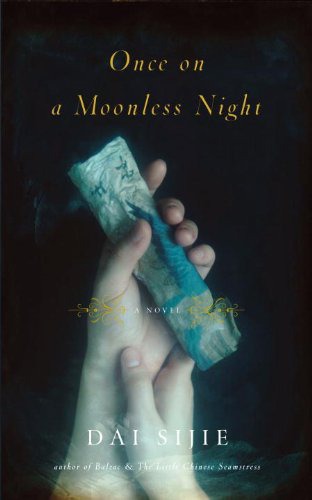
ALSO BY DAI SIJIE
MR. MUOS TRAVELLING COUCH
BALZAC AND THE LITTLE CHINESE SEAMSTRESS
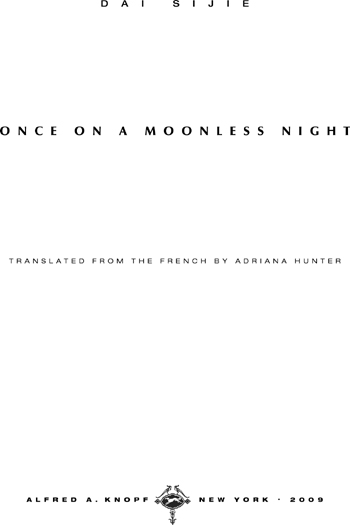
1978 1979
L ETS CALL IT THE MUTILATED RELIC , this scrap of sacred text, written in a long-dead language, on a roll of silk which fell victim to a violent fit of anger and was torn in two, not by a pair of hands or a knife or scissors but quite genuinely by the teeth of an enraged emperor.
My chance meeting with Professor Tang Li sometime in mid-July 1978 in a conference room of the Peking Hotel, and what he revealed to me about that treasure, both shine out to this day like a little square of light in the hazy and confused labyrinth that my memories of China have become.
For the first time in my life I was being paid in my capacity as interpreter in a meeting set up by a Hollywood production company to discuss the screenplay of The Last Emperor, which went on to be the major film that everyone knows, garlanded with nine or ten Oscars and generating astronomical box office takings. With permission from the University of Peking, where I was enrolled in the Chinese literature department as a foreign student, and armed with a notebook bought the day before specially for the occasion, I made my way to the Peking Hotel in the middle of a summer afternoon so hot it vaporised everything, turning the city into a cauldron steadily stewing its population. Creaking their last, my bicycle wheels sank into the cloying asphalt, softened by the heat and giving off little spirals of blue smoke. The foyer of the eight-storey hotel (the citys only skyscraper at the time) was overflowing with excited activity, the revolving glass door besieged by a noisy succession of fifty a hundred, two hundred people, I couldnt tell. Judging by their accents they had come from every corner of China. Parents laden with provisions and children carrying violin cases on their backs and, despite the heat, wearing Western-style blazers with white shirts buttoned up to the neck and ties or bow ties, even though some of them were barely six or seven years old. As soon as each child appeared in the foyer, a riot broke out; the others would swarm over and huddle round, peering anxiously and bombarding the newcomer with impatient questions. It looked just like a crowd of worried refugees jostling at the doors of an embassy. After a while I gathered that they were each waiting for a private audience with Yehudi Menuhin, who came to China once a year on a mission that was as charitable as it was artistic (and in which there was a certain element of personal publicity): to find one or two child prodigies, a new Chinese Mozart. This was a golden opportunity for these young violinists, an unhoped-for chance to set off for the United States and attend a music school directed by the master himself.
The lift wasnt working and the climb to the eighth floor, where my meeting was being held, required considerable effort, especially as there were violinists everywhere in the stairwell too, milling about like ants, sitting or even lying on the stairs, along corridors and in the corners of window ledges. Eventually, almost rigid with exhaustion, I reached the meeting room and found that it was, quite by coincidence, right next to the budding violinists audition room, which had its door closed.
I was invited to join a group comprising a representative for the Italian-American director, a production assistant, another translator and a dozen eminent Chinese historians. We were seated around a rectangular table covered in a white cloth dotted with tins of Coca-Cola, cups of tea, ashtrays and vases of plastic and paper roses, and in the middle, in pride of place, stood an imposing and majestic professional tape recorder. On the wall hung an enlargement of a black-and-white photograph of Puyi, the last emperor, taken in the Forbidden City on a particularly raw winter day in 1920. He was wearing a Western-style jacket and glasses with rimless round lenses, his features tense, his expression dark.
The introductions and handshakes were accompanied by my halting translation from Chinese into English laced with a strong French accent, while the other translator, who was barely more at ease than I was, translated from English into Chinese; protocol was strictly respected. I noticed a Chinese man of about sixty, not like the others who all wore short-sleeved shirts; he was draped in traditional Chinese dress (a tunic in dark blue satin, buttoned at the side and falling to the floor) which, bearing in mind the season, made him look slightly absurd if also touching. He alone bowed to greet the organisers of the meeting, but with no hint of sycophancy, and occasionally he raised an elegant hand, in a gesture so slow it seemed to date from a different age, to stroke his long white beard, which wafted gently in the draught from the fan hanging from the ceiling. It seemed time had stopped over him, he alone was the incarnation of an entire era, a separate universe. When he spoke his name, in just two characters, I was struck by their simplicity and familiarity, which I mentally associated with I searched and searched as I looked at his face, but in vain. The memory stayed buried in some recess of my mind, paralysed by the nerves of this first professional experience.
When I translated the nickname that his Chinese colleagues gave himthe Living Dictionary of the Forbidden Citythe directors representative burst out laughing and promised, rather condescendingly, to hire this gentleman for a walk-on part or even a minor role. The other Chinese people present fell about laughing, but not the old man. I heard the hum of mosquitoes dancing in the artificial draft from the fan, flitting across beams of light that striped the room. The sound of a violin through the wall acted as background music to the meeting, a Mendelssohn sonata or concerto, gentle, slightly mawkish.
Two or three hours elapsed before I turned to look at the man in traditional dress again. The meeting, during which he had remained silent, was drawing to a close and the participants were glancing impatiently at their watches when he suddenly began to speak in a cracked, reedy, almost strangled voice.
If we have a few more minutes I would like, very humbly, as humbly as my background dictates, to plead the case for re-establishing the truth.
In a fraction of a second, as I translated what he had said, I thought I knew what his name reminded me of. It was Just then a large mosquito which was stuck to the forehead of the directors representative caught my eye; I saw it take off, hover, veer back and land very precisely on the end of his nose, probably a less oily site. A verse from a Russian poet whom I had just read in translation came to mind: the mosquito beatifically raised its ruby belly. That was exactly it. As for knowing who the old Chinese man was, my vague recollections were extinguished almost before they were lit.
I would beg the director and his writers, went on the old man, either by your intermediary or through the tape recorder on which my eminent colleagues cannot help focusing, to throw this screenplayor at least this versionin one of the hotels bins, where, despite the establishments reputation, theres quite a substantial population of hidden little scrabbling creatures who, I can only hope, will nibble it page by page, word by word. So very far is it from the true character of Puyi, who, contrary to the untruthful biography on which your screenplay is based, was a pathologically complex person, and Im not referring here to his homosexuality, for many an emperor before him had similar tendencies. That is not the question, but his sadistic cruelty and frequent fits of deliriumas unpredictable as they were uncontrollablewere due to schizophrenia, in the purely medical sense of the term.
Font size:
Interval:
Bookmark:
Similar books «Once on a Moonless Night »
Look at similar books to Once on a Moonless Night . We have selected literature similar in name and meaning in the hope of providing readers with more options to find new, interesting, not yet read works.
Discussion, reviews of the book Once on a Moonless Night and just readers' own opinions. Leave your comments, write what you think about the work, its meaning or the main characters. Specify what exactly you liked and what you didn't like, and why you think so.

